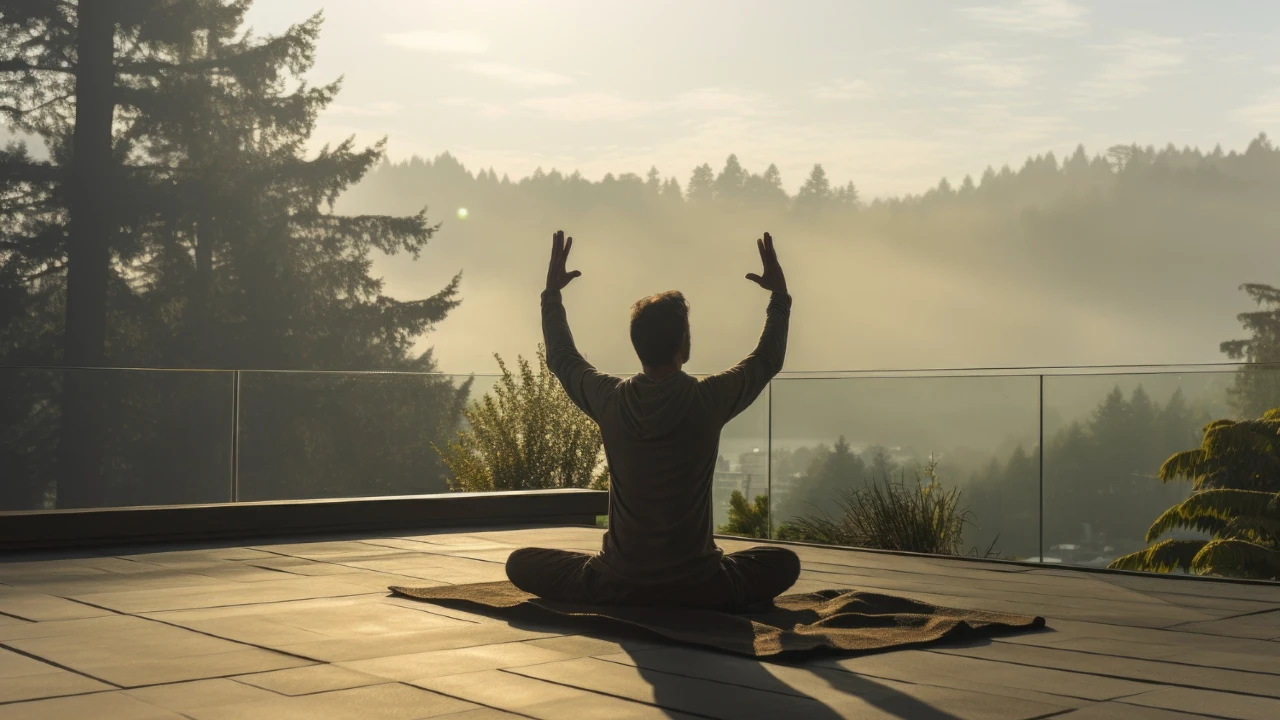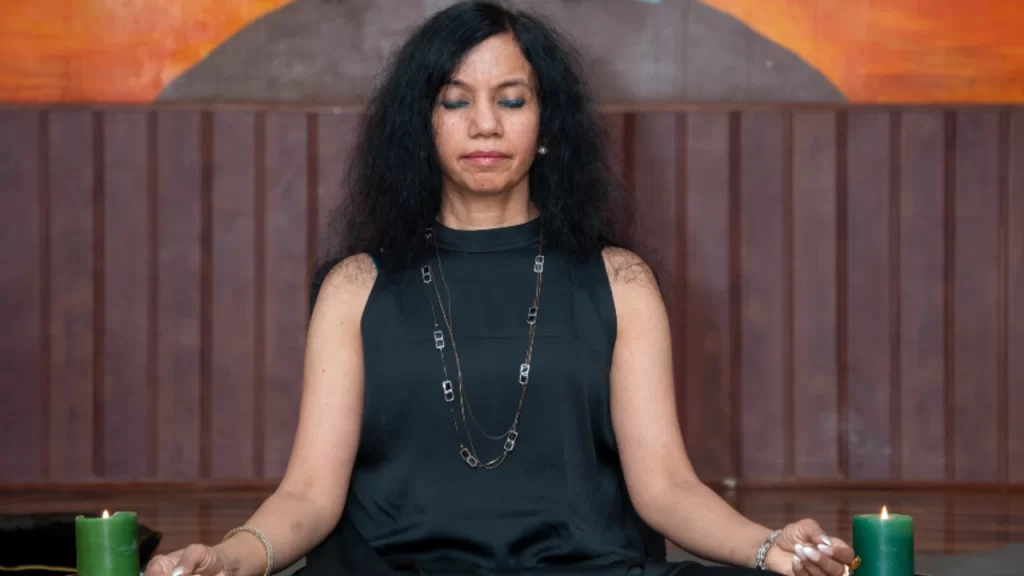In today’s fast world, many people cannot have deep, restorative sleep. Stress and anxiety, coupled with non-stop screen time, make a person unable to relax his mind and unwind. The best way that can calm the mind to prepare the body for a nice night’s sleep may very well be the practice of a 30 minute meditation for sleep.
Why Choose Meditation for Sleep?
Modern life is so hectic and stressful that there is almost no time for the body to relax and fall into a peaceful sleep. A 30 minute meditation for sleep quiets the brain and calms the body so it falls into a deep relaxing sleep. This practice can help with mindfulness, controlling breathing, and visualization. Regularly practicing these techniques would enhance the quality of your sleep and even eliminate certain issues like insomnia.
Meditation works in a manner that reduces the production of stress hormones, such as cortisol, and increases the production of melatonin, the hormone in charge of regulating sleep. Just dedicating 30 minutes to meditation each night creates a soothing bedtime ritual, signaling to your brain that it’s time to sleep.
How to Prepare for a 30 Minute Meditation for Sleep
Create a peaceful environment before practicing your meditation. Here are a few steps to guarantee that your session is quite effective:
- Choose a Quiet Space: Choose an area that is quiet, comfortable, and where no one will bother you.
- Dim the Lights: Adjust the lighting by using some soft lighting or turning them off for an ideal serene ambiance.
- Use Comfort Items: Make use of a snug blanket, a supportive pillow, or some lavender fragrance for more comfort.
- Set an Intention: Choose to release all your worries and concentrate solely on relaxation.
Preparing your space will enhance the effectiveness of your 30 minute meditation for sleep and allow your mind to transition into a restful state much more easily
Guided Steps for a 30 Minute Meditation for Sleep
Here is a simple and effective routine to follow:
1. First 5 Minutes: Breathing Exercises
- Sit or lie down in a comfortable position.
- Close your eyes and take slow, deep breaths, inhaling through your nose and exhaling through your mouth.
- Focus on the rise and fall of your chest, letting go of any tension in your body.
2. Next 10 Minutes: Body Scan
- Gradually bring your attention to different parts of your body, starting from your toes and working up to your head.
- Notice any tension or discomfort, and consciously relax each area.
- This technique helps you release physical stress, preparing you for deeper relaxation.
3. Next 10 Minutes: Sleep Visualization
- Visualize yourself in a peaceful setting, such as a quiet beach, a serene forest, or your dream bedroom.
- Imagine the soothing sounds, calming scents, and the overall sense of safety in this place.
- Let this visualization guide you into a deeper state of calm.
4. Final 5 Minutes: Repetition of a Sleep Mantra
- Choose a simple mantra like “I am calm and ready for sleep” or “Peace surrounds me.”
- Repeat this mantra silently or aloud as you feel your mind drifting into a tranquil state.
By following this step-by-step process, your 30 minute meditation for sleep will become a powerful tool for achieving better rest.
Benefits of a Regular Sleep Meditation Practice
Better Emotional Well-being: A restful night’s sleep supports emotional stability and resilience.
Improved Sleep Quality:Meditation slows down racing thoughts and calms your body, hence deeper and more restorative sleep.
Lower Stress Levels: Consistent practice of meditation helps regulate stress and anxiety, making it easier to fall asleep.
Enhanced Focus and Productivity: Better sleep translates to improved focus and energy during the day.
Tips to Enhance Your Sleep Meditation Experience
- Incorporate Healing Practices: Techniques like alchemy energy healing or healing stone therapy can complement your meditation practice, aligning your mind and body for restful sleep.
- Seek Guidance: If you’re new to meditation, working with a professional in life counseling or a life coach India can provide tailored advice to enhance your practice.
- Consistency is Key: Make your 30 minute meditation for sleep a nightly habit for the best results.
- Explore Family Constellation Therapy: This holistic approach can help resolve underlying emotional tensions, further improving your ability to relax and sleep.
Using Technology for Sleep Meditation
Apps and other internet-based platforms feature sleep meditations specifically tailored for sleep. Popular examples include:
- Calm: A well-known app with guided sleep meditations and sounds.
- Headspace: offers its structured programs to all the beginners and even most advanced meditators.
- Insight Timer: hundreds of free meditations here including those for sleep.
These resources make it easy to incorporate a 30 minute meditation for sleep into your routine, even on the busiest days.
Conclusion
A 30 minute meditation for sleep transforms your nights from restless to restorative. Just half an hour every evening spent on mindfulness and relaxation can be really transformative for your body and your emotions. This simple practice calms the mind, reduces tension, and gets the body ready for deep sleep.
Several techniques exist for you to discover through meditation. The breathing exercise is meant to keep your nervous system in control. Body scanning helps remove tension and encourages relaxation. Visualization is an environment where the person can visualize a very peaceful and soothing environment to wind down his mind, or a soothing mantra which would bring about peace and stability.
Consistency is key to making this practice effective. Set aside 30 minutes every night in a quiet, comfortable space. Over time, you’ll notice improvements in your sleep quality, waking up feeling refreshed and more energized.
In your daily routine, add a 30 minute meditation for sleep. It is the easiest yet most effective means of improving your overall health and well-being. Try it tonight, and see how it works to relax, recharge, and really rest.
FAQ’s
How to get to sleep in 30 minutes?
To fall asleep in 30 minutes, establish a calming bedtime routine. Dim the lights, avoid screens for at least an hour before bed. Do deep breathing exercises or guided 30-minute meditation to help calm your mind and body. Ensure your bedroom is comfortable, quiet, and cool to sleep in. Do not consume heavy meals, drink caffeine, or engage in stimulating activities close to bedtime. Reading a sleep-inducing book or soothing music can also help. Creating peaceful surroundings and adopting these routines will help you fall asleep quickly and wake up revitalized.
Which meditation is good for sleep?
Guided meditations, body scans, and mindfulness practices are excellent for promoting sleep. These techniques are often combined in a 30-minute meditation for sleep to calm the mind and relax the body. Guided meditations are done with soothing voice instructions that help ease you into a restful state, whereas body scan meditations focus on the release of tension by relaxing progressively each part of the body. Mindfulness meditation teaches one to focus upon the breath and presence to quiet rapid racing thoughts. Listening to repeated soothing mantras or envisions of serene landscapes helps bring relaxation while performing the meditation, allowing it to be even better for promoting quality sleep.
What is the 10-3-2-1-0 rule for sleep?
A very simple rule to improve sleep quality is the 10-3-2-1-0 rule.
- 10 hours before bed: Don’t take caffeine because it stays in your system and can affect your sleep.
- 3 hours before bed: Refrain from heavy meals and alcohol as they can lead to digestive issues or unrestful sleep.
- 2 hours before bed: Avoid working or any mentally stimulating activities because your mind needs to be uncluttered.
- 1 hour before bedtime: Turn off all screens including cell phones, TVs, computers as it has proven to cut the production of melatonin
- 0: No snoozing of alarms in order to achieve the rhythm of waking.
Follow this rule for having sleep restorative and soundly.
How to get to sleep quickly?
For one to sleep faster, establish a relaxing pre-bedtime routine. Dim all the lights and refrain from screens for at least one hour before sleeping. Learn to practice deep breathing or even meditation for sleep, ideally lasting 30 minutes to help the mind and body unwind. Your bedroom should also be comfortable, cool, dark, and noisy as possible. Avoid caffeinated beverages, heavy food intake, or vigorous exercise an hour before sleep. Attempt progressive muscle relaxation by tensing and relaxing each of the muscle groups starting from your feet up. Also, reading a soothing book or listening to calming music will make you fall asleep easily.







Leave a Reply